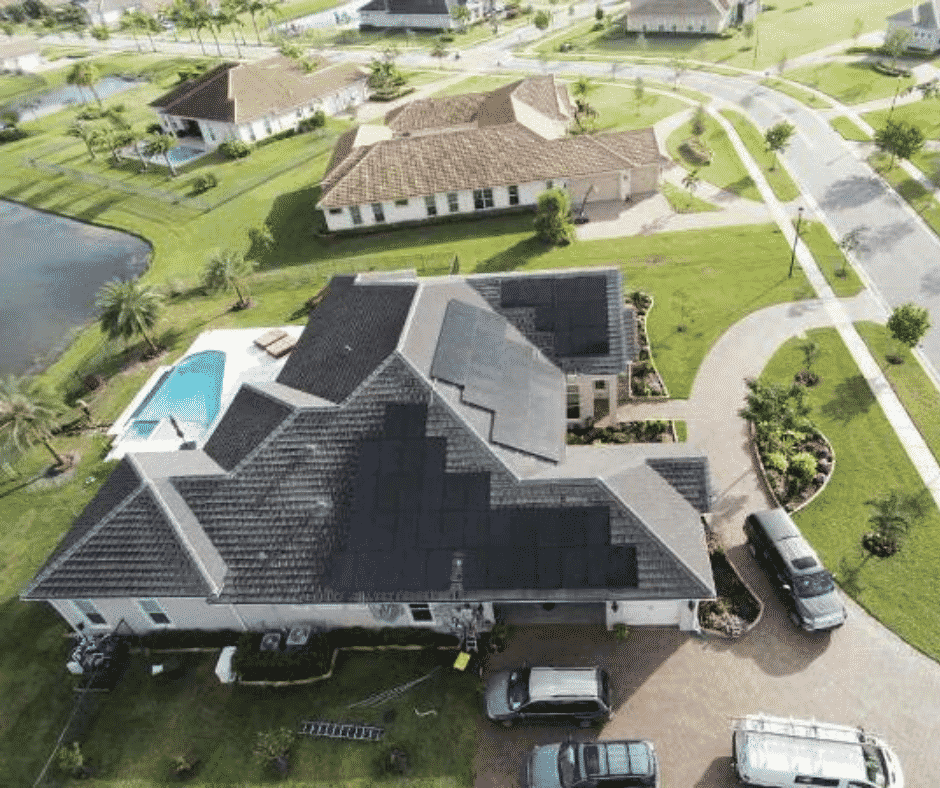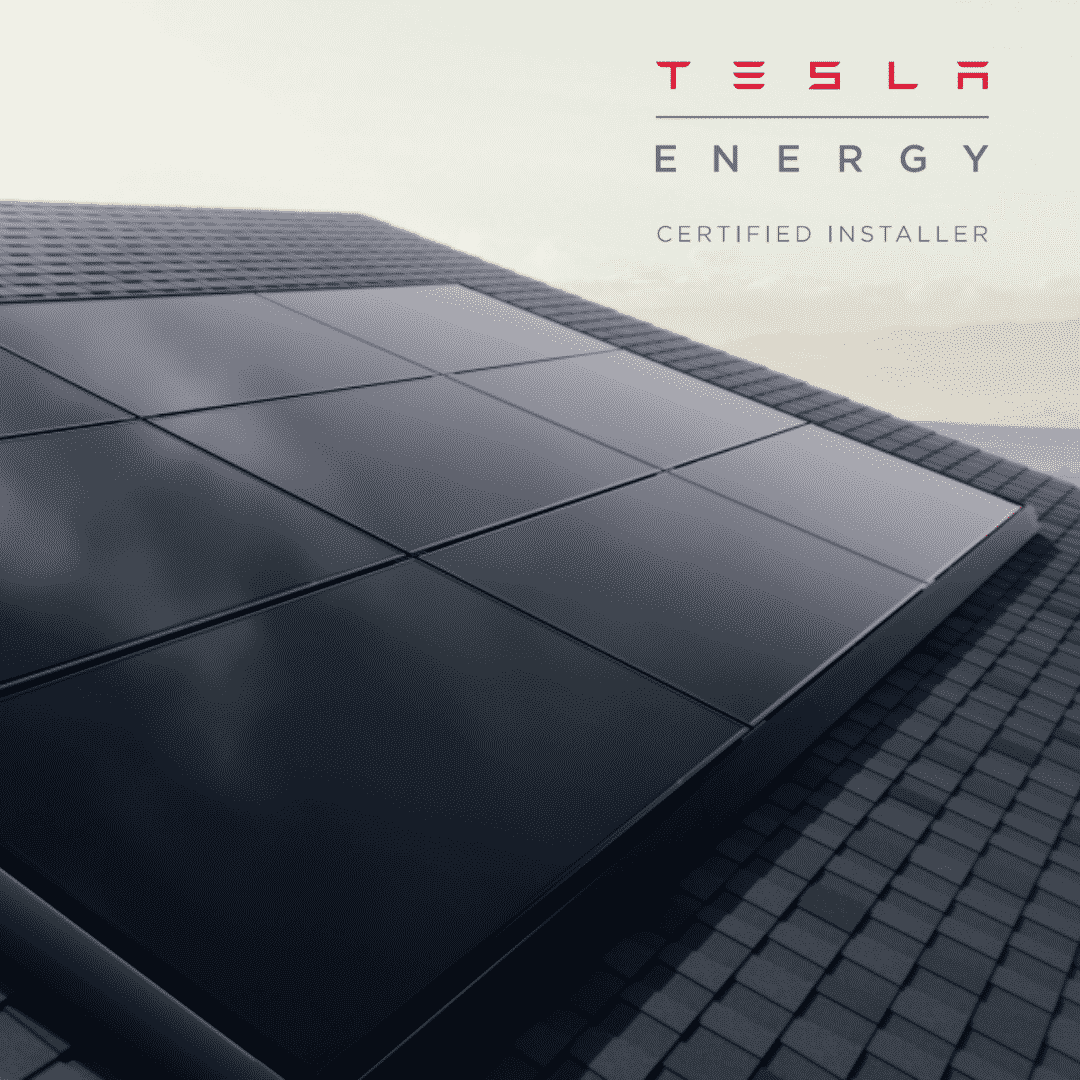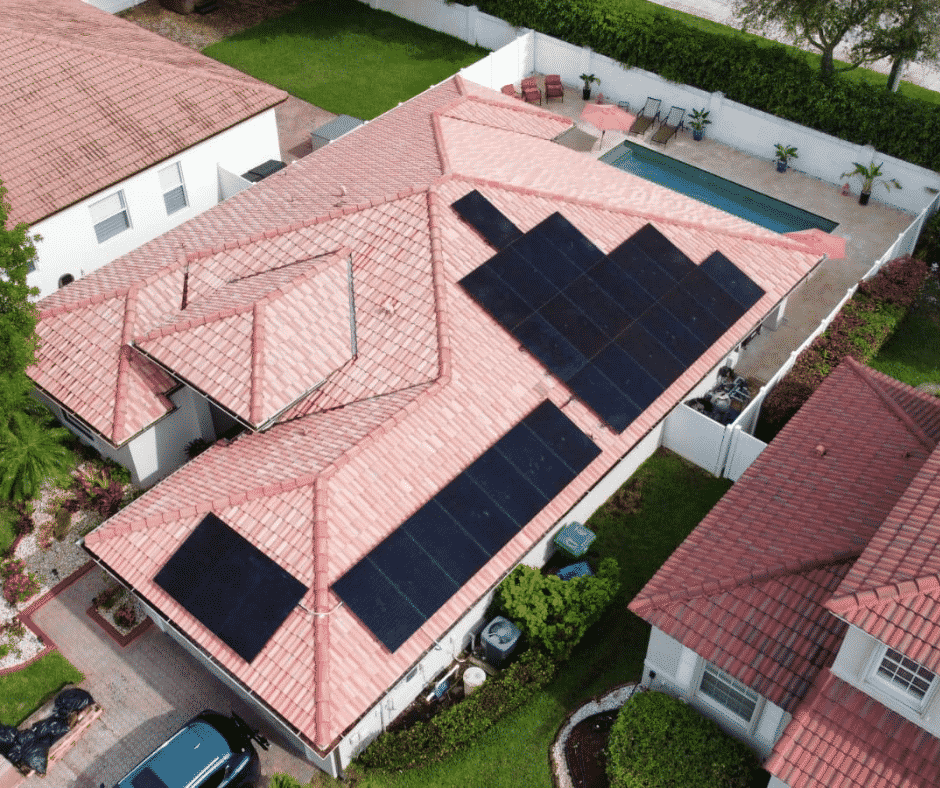Reduce your Future Carbon Footprint
Solar energy is clean and renewable, the perfect way to reduce the atmosphere-damaging carbon dioxide emissions coming from your property. Producing solar electricity doesn’t create pollutants and is even more earth-friendly than nuclear energy.
Your choice to transition your home to solar energy also helps lessen the need for – and the dependency on – fossil fuels.
Solar Considerations
There are some things to consider before you jump on the solar bandwagon. For instance, how long do you plan to stay in your home? How long will the panels last, and how much should you budget for buying or leasing?
Solar energy isn’t a get-reimbursed-quickly system. Instead, it’s a long-term investment so consider how long you’ll live in your home. It could take seven or more years for you to recoup the purchase cost through energy savings.
Another thing to consider is the condition of your present roof. You’ll have to remove the panels and put them back when you replace shingles on your roof. Therefore, if you’re considering getting panels, take a good look at your roof. If it has seen better days, you may want to replace it before you install solar panels.
Installation costs
Look for a professional company to install your panels. The cost of both panels and installation vary according to your system, region and the location of the panels (on a roof or on the ground).
Can Your Roof Hold Solar Panels?
Before signing up, do some homework on your own roof’s age and materials. Installing solar panels consists of mounting a connected racking system directly onto your roof, and not all roofs are suitable. Roofs on homes that are historical (or are older), those with slate or cedar tile roofs, or homes with skylights or roof decks are difficult to fit with racking systems. There could also be concerns with roof leaks because the racking is screwed directly onto your roof.
If your roof isn’t a candidate for panels but you have the room in your yard, you can have panels installed on the ground. If neither of those locations is an option, you can research whether there’s a local community “solar garden” that you can participate in.
Climate and Weather in the Future
The amount of sun that hits your roof and its orientation to the sun can impact how much energy your solar panel system generates each day. The more sun (and less shade) your roof has, the more energy those panels can produce. This is great news for homeowners in high-sun regions.
Solar panels can lose a small amount of their efficiency in climates whose heat rises above about 90 degrees, though. You can keep track of how weather affects your panels through the monitoring panel.





